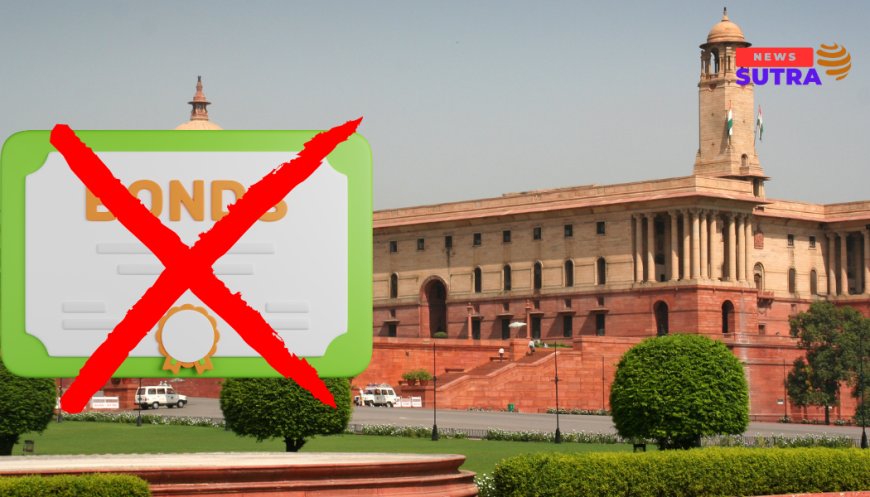Political Funding and Electoral Bonds: Growing Calls for Transparency in Indian Democracy
Political funding through electoral bonds has sparked intense debate in India. This article explores transparency issues, recent demands for reform, and the impact on democratic accountability.

Political funding remains a cornerstone issue in the functioning of democracies worldwide, and India is no exception. The introduction of electoral bonds in 2018 was touted as a mechanism to make political donations more transparent and reduce cash funding. However, over the years, this instrument has become the subject of heated debate and increasing demands for greater transparency and accountability.
As the country approaches pivotal elections, stakeholders ranging from civil society groups to opposition parties are amplifying calls for reforming the electoral bond system to uphold democratic principles.
What Are Electoral Bonds and Why Were They Introduced?
Electoral bonds are financial instruments designed to allow donors to contribute funds to political parties through banks in a manner that protects donor anonymity. The scheme, launched by the Government of India in 2018, was intended to reduce the influence of black money in politics by channeling political donations through formal banking channels.
Donors can purchase these bonds from designated banks and transfer them to political parties, who then redeem them for funds. However, the anonymity clause has raised concerns that this system may instead obscure the source of political funding, reducing transparency.
For a detailed breakdown of the electoral bonds scheme, refer to the PRS Legislative Research summary.
Transparency Concerns: What Critics Are Saying
Lack of Disclosure
Critics argue that while electoral bonds are meant to curb illegal funding, the anonymity they guarantee prevents public scrutiny of who funds political parties and to what extent. The Election Commission of India (ECI) has repeatedly stressed that full disclosure of political donations is essential for a healthy democracy.
Potential for Influence and Corruption
Transparency watchdogs and opposition parties claim that the system enables untraceable corporate and individual donations, which can skew political influence in favor of well-funded entities. This opacity raises questions about accountability and the fairness of electoral competition.
For a comprehensive critique, see the Centre for Policy Research’s report on electoral financing.
Judicial and Legislative Developments
The Supreme Court of India has examined petitions challenging the electoral bonds scheme. While the Court has upheld certain provisions, it has also highlighted the need for greater oversight and transparency in political funding mechanisms.
Parliamentary committees and public interest litigations have pressed for reforms to balance donor privacy with the public’s right to know. Some experts suggest that mandatory disclosure of donors above a threshold amount could enhance accountability without compromising privacy.
For ongoing legal perspectives, visit Live Law’s electoral bonds coverage.
Political Responses and Reform Proposals
Opposition Parties’ Stance
Opposition parties have vocally opposed the electoral bonds scheme, calling it a tool that favors the ruling party by allowing anonymous donations without checks. They demand a return to transparent disclosure norms that existed prior to the scheme.
Civil Society and Expert Recommendations
Non-governmental organizations and election reform advocates recommend:
-
Instituting a public registry of political donors
-
Limiting anonymous contributions
-
Enhancing the Election Commission’s investigative powers
The Association for Democratic Reforms (ADR) offers extensive resources on electoral funding transparency: adrindia.org.
Impact on Indian Democracy
The ongoing debate over electoral bonds touches on fundamental democratic values — transparency, accountability, and fairness. Without clarity on who funds political parties, voters remain in the dark about potential conflicts of interest or undue influence.
The system’s opacity also challenges international democratic standards and India’s global image as a vibrant democracy.
For comparative studies, see International IDEA’s report on political finance.
Conclusion: The Road Ahead for Political Funding Transparency
As India’s democracy matures, calls for reforming political funding mechanisms grow louder. Electoral bonds, while aiming to curb black money, currently face scrutiny for enabling opacity.
The government, judiciary, and civil society must collaborate to design a framework that upholds both transparency and donor confidentiality, ensuring a level playing field for all political actors and safeguarding democratic integrity.




















































